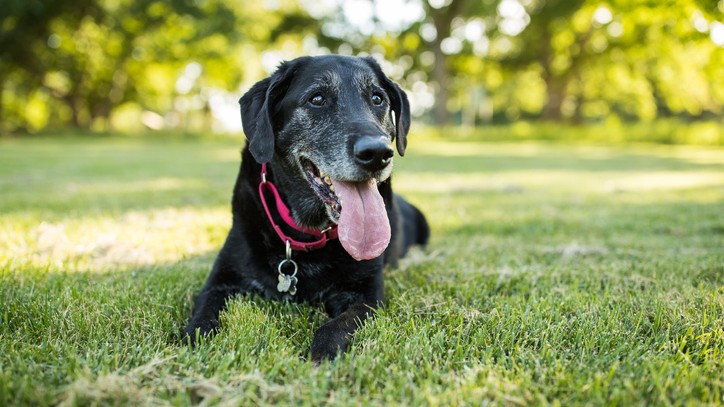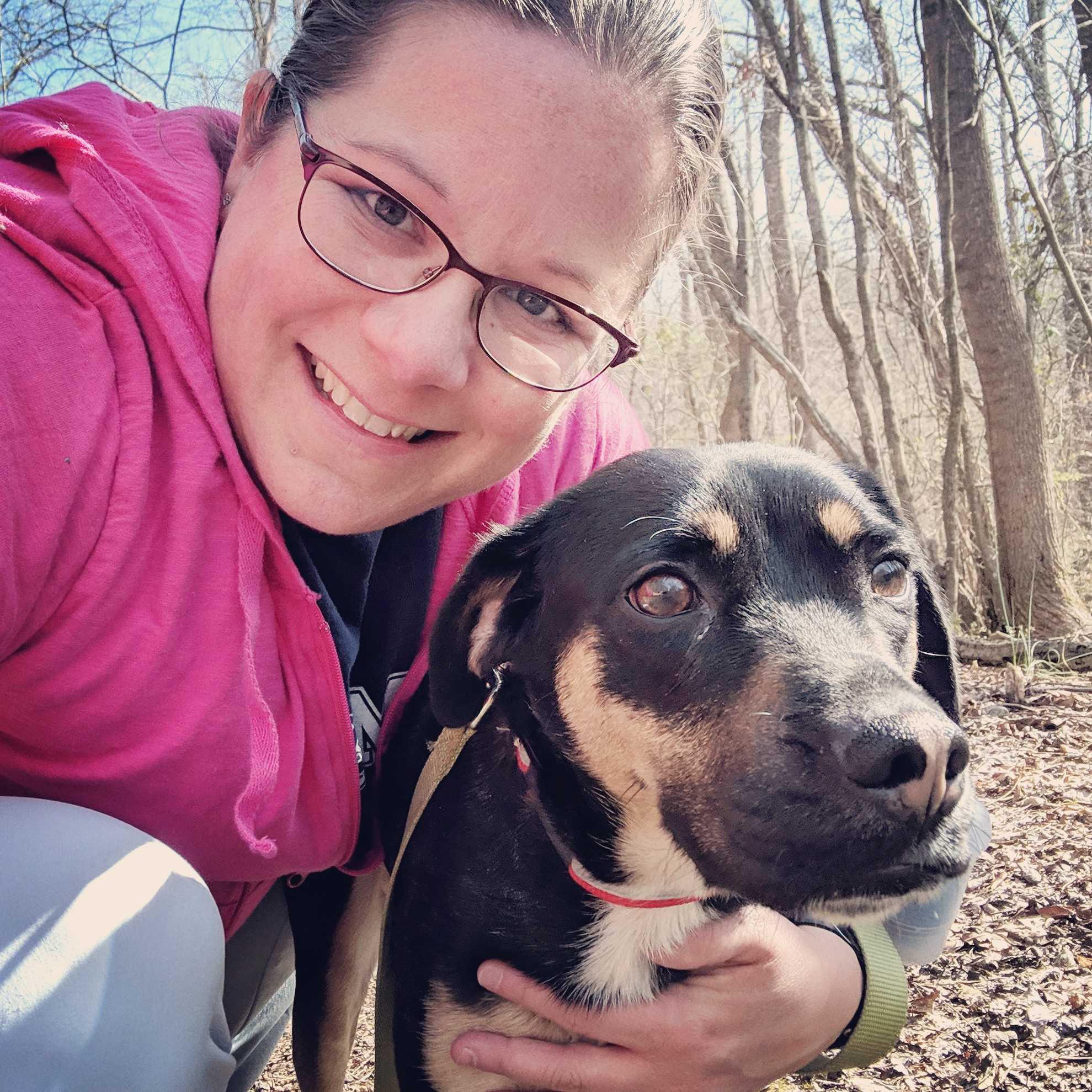What’s the best dog food for senior dogs? 5 diet tips for older pooches
Choosing the best dog food for senior dogs can maximize your older dog’s health by providing the best possible nutrition

Get the best advice, tips and top tech for your beloved Pets
You are now subscribed
Your newsletter sign-up was successful
The best dog food for senior dogs is one that provides for the changes in metabolism and nutritional needs that dogs experience over their lifespan. In some cases, you may need to transition your dog from the best dry dog food or the best wet dog food that they’d previously enjoyed to one that is more appropriate for their older age.
Although the exact age cutoff for a “senior” dog varies based on size and breed, most dogs reach this milestone at seven to ten years of age. Senior dogs are more prone to a variety of medical conditions, including obesity, osteoarthritis, metabolic diseases (such as hypothyroidism and Cushing’s disease), and cognitive decline. Although no diet can prevent aging or all age-related conditions, modifying your dog’s diet as they age can help maximize your dog’s health and quality of life.
- Can a dog be vegan? We asked a vet…
- Best dog toys: Six options to keep your pet pooch amused
- Best dog nail clippers: Give your pooch the perfect pedicure
1. Modify your dog’s caloric intake to prevent obesity
Older dogs typically burn fewer calories per day than younger dogs. Not only do older dogs experience a gradual slowing of their metabolism, but they also tend to be less active and get less exercise. This combination of factors often leads to weight gain. Unfortunately, weight gain is a bit of a vicious cycle; as dogs gain weight, they become less active, which leads to further weight gain. Before you know it, your once-active dog has become a couch potato who can’t fetch a single ball! If this is your dog, we can help you with some advice on what to do if your dog is overweight.
Just like in humans, weight gain isn’t purely a cosmetic problem. Obesity can significantly impact your dog’s quality of life. Obesity contributes to arthritis in dogs, for a number of reasons. The first, and most intuitive, link between obesity and arthritis is that obesity places additional strain on a dog’s skeletal system. Secondly, and perhaps less obviously, fatty tissue has been shown to release chemical signals that contribute to inflammation. Therefore, fat itself can contribute to the development of arthritis! By keeping your dog lean, you can minimize your dog’s risk of arthritis and promote healthy mobility.
Senior dog foods are often formulated to prevent obesity, given that it's such a common problem in older dogs. These diets are typically calorie-restricted in order to prevent weight gain as aging dogs begin to burn fewer calories. Don’t rely on a diet change alone to regulate your dog’s weight, though. Even if you transition your dog to senior food, you will still need to follow the food’s label recommendations.
Measure out your dog’s meals, according to the label recommendations, to ensure that he is receiving an appropriate number of calories each day. If your dog is gaining weight despite an appropriate diet, consult your veterinarian. Older dogs are prone to certain hormonal imbalances, such as hypothyroidism and Cushing’s disease, that can lead to weight gain. Your veterinarian can recommend diagnostic tests to determine whether these conditions may be affecting your dog.
2. Look for senior dog foods that contain supplements to reduce the risk of osteoarthritis
Osteoarthritis is a common condition in older dogs. Therefore, many senior foods contain nutritional ingredients that are intended to help combat arthritis in aging dogs. These supplements are intended to strengthen cartilage and decrease inflammation. We have further advice here explaining dog food ingredients.
Get the best advice, tips and top tech for your beloved Pets
Two common ingredients included in foods to combat arthritis are glucosamine and chondroitin. These substances are normal components of healthy cartilage; their addition to the diet is thought to support healthy cartilage function. Although the evidence on the benefits of glucosamine and chondroitin is relatively weak, these supplements are widely regarded as safe and relatively risk-free to administer. Therefore, many pet food manufacturers (and pet owners) prefer to give these supplements to older pets, because the potential benefits outweigh any minimal risk that may be associated with these supplements.
Omega-3 fatty acids, such as EPA and DHA, are also included in many senior dog foods. These fatty acids are thought to have a number of beneficial effects in the body, including a decrease in inflammation associated with arthritis. Unlike glucosamine and chondroitin, omega-3 fatty acids do have evidence to support their use in the management of canine arthritis. By decreasing inflammation within the joints, omega-3 fatty acids can help to alleviate the clinical signs of osteoarthritis in aging dogs.
- Best dog grooming kit: Keep your dog looking clean and smart, at least until the next walk
- Best dog food for allergies: Keep your canine companion fighting fit with these hypoallergenic foods

3. Combat age-related cognitive decline through diet
While the physical effects of aging may be the most obvious, dogs also experience cognitive effects of aging, just like humans. In dogs, these aging changes are referred to as cognitive dysfunction syndrome. Dogs with cognitive dysfunction syndrome may demonstrate a variety of signs, including anxiety, disorientation, lapses in housebreaking, changes in social interactions, and changes in activity level.
If you begin to observe behavioral changes in your dog that appear to be associated with age, consult your veterinarian to make sure there isn’t an underlying medical condition that is causing these changes. Some of these cognitive changes can also be associated with medical conditions, such as diabetes, hypothyroidism, Cushing’s disease, or neurologic condition. If no underlying medical cause is suspected, however, you may want to consider a diet that is specifically formulated to support cognitive function.
Studies have demonstrated that there are a number of ingredients that may support cognitive function. Dietary ingredients that have been shown to be beneficial include antioxidants, vitamins C and E, beta-carotene, selenium, flavonoids, carotenoids, L-carnitine, DL-alpha-lipoic acid, medium-chain triglycerides, and omega-3 fatty acids. In recent years, an increasing number of diets are being manufactured that contain these ingredients at levels specifically intended to support cognitive function in dogs. While results may vary depending on the individual, many owners of older dogs report excellent results with these diets.
4. It isn’t always just “old age”
As our dog's age, it’s often easy to dismiss changes as being solely age-related. It’s important to remember, however, that this isn’t always the case. In addition to normal age-related changes, your dog may develop a variety of medical conditions that require diagnosis and treatment by a veterinarian. Many medical conditions are best managed with a prescription diet that is specifically formulated to address that particular medical condition. For example, cardiac diets for dogs are often formulated to be low in sodium, while kidney diets are formulated to be lower in protein, phosphorus, and sodium. Therefore, it’s important to follow your veterinarian’s recommendations when feeding your aging dog.
5. Support your dog’s appetite in older age
While our primary concern in most older dogs is obesity, many dogs reach an age where their appetite declines. This may occur because they feel ill and just aren’t as interested in eating, or it may be caused by pain, dental disease, or other conditions that make eating more challenging. Regardless of the cause, some very old dogs struggle to maintain weight.
If your dog’s appetite begins to decline, work with your veterinarian to see if you can determine the cause. In some cases, dogs find it difficult to bend over to eat out of their food bowl, due to osteoarthritis pain. In these dogs, an elevated bowl or a bowl near their preferred sleeping area can make a big difference to the dog’s willingness to eat.
At other times, a dog may be reluctant to eat because they struggle to chew, or the food doesn't taste as full of flavor as it once did. In this case, you may need to transition your dog from dry food to canned food or even add something extra-tasty, like baby food, in order to entice your dog to eat. (If you do use baby food, talk to your veterinarian first to ensure that you aren’t feeding any ingredients that may be harmful for your dog)
Work with your veterinarian
While it can be challenging to determine the best dog food for senior dogs, it doesn’t have to be. Talk to your veterinarian, who is familiar with your dog’s overall health and medical history, to develop an appropriate dietary plan for your aging dog.
Caring for a senior dog can be tricky - here are 10 top tips from a behaviorist.
Dr. Barnette is a graduate of the University of Florida, where she received both her B.S. in Zoology and her Doctor of Veterinary Medicine (DVM). She has 15 years of clinical experience as a small animal veterinarian, treating dogs, cats, and occasional exotic patients. She now works as a freelance veterinary writer, creating educational content for veterinarians, veterinary team members, and dedicated pet owners. Dr. Barnette lives in southwest Florida with her husband and daughter (plus two cats, a dog, and a rescued dove!) and enjoys kayaking, biking, and hiking. Learn more about Dr. Barnette at www.linkedin.com/in/catherinebarnette.

